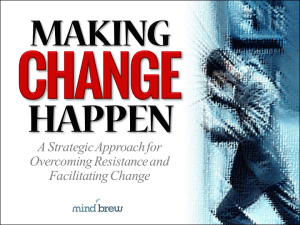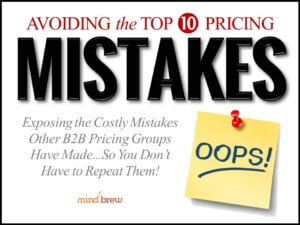I have a good friend who is a special education teacher. One day when we were talking, she mentioned that she thinks dyslexia is one of the most difficult academic challenges kids can face, especially if they are otherwise bright.
I naively replied, “Well, at least if they’re bright, they can do well in other subjects. If they’re good at math and science, it might not ultimately matter if they don’t do that well in English class.”
“No, you don’t understand,” my friend explained. “You need to be able to read to do well in all the subjects. Even in math and science, you have to be able to read the textbook. Kids have until about the third grade to learn to read, after that, they have to be able to read to learn.”
I understood then what she meant about dyslexia being so challenging. And I also realized that there is a parallel in pricing.
In the same way that reading provides the foundation for all academic success, one particular skill is fundamental for success in pricing. Can you guess what it is?
No, it’s not pricing analysis or being an expert at waterfall charts. It’s not training or team-building or even strategic thinking. It’s also not communication, although you are getting closer.
The most important fundamental skill for pricing is change management.
Surprised?
You shouldn’t be. Every improvement, best practice, and concept we highlight here in PricingBrew ultimately requires change somewhere within the organization. If the pricing team doesn’t have the ability to manage change, the initiative is almost certainly doomed to fail—even if the team handles every other aspect of the initiative perfectly.
Pricing teams often think that they’ll start thinking about change management when it comes time to roll out the change to the organization, but that’s far too late. Time and time again, our research has revealed that companies that start thinking about change management in the earliest stages of an effort are the most successful. Trying to manage change on the fly when it becomes necessary is at best a painful process—and more often simply results in failure.
As a result of this understanding, we focus a lot of our research on the change management hurdles that organizations like yours have faced. We delve deep into what has worked in the past and what hasn’t. Then we distill best practices that explain how to deal with or avoid these hurdles.
Just about every guide, tutorial, case study, and webinar we have posted incorporates change management elements. Not only that, but we also have key resources focused specifically on the topic:
- Making Change Happen offers a strategic overview of change management. It covers most of the basic principles and specifically applies them to pricing.
- Answering Three Questions to Enable Change explains why traditional approaches to change management don’t work, and it provides a simple framework for doing things better. It explains how to lead others in your organization through the though process so that they get on board with making a change.
Change management is critical, but fortunately, it is also very teachable. Make sure your team has the skills they need in this area.















